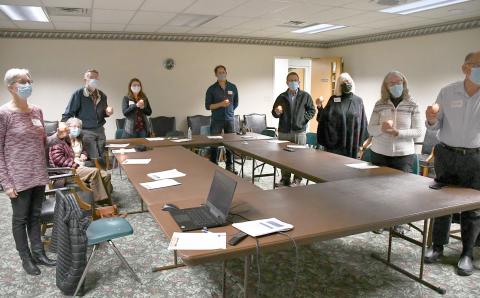Our family joined a Christian Reformed church a few years ago. Recently a deacon expressed concern that we were not contributing more to the general fund. It makes me uncomfortable to think that deacons are talking about how much people are giving and whether it is sufficient. Is this what happens in the CRC?
The giving patterns and expectations of some Christian Reformed churches can seem intrusive to newcomers in the community, especially if communications are handled less than sensitively. But there are reasons for deacons to talk to some members about their giving.
One would hope that when you joined the church the welcome included an introduction to giving opportunities and expectations. In the CRC, the congregation is viewed as a covenant community, with members understanding that they share a mutual obligation to support ministries of the church. This isn’t a legally enforceable obligation or a contractual obligation, but it’s a communal obligation as opposed to a purely private obligation—at least within the Reformed perspective of the CRC. This communal obligation arises out of a heart of gratitude to God.
One of the deacons’ tasks is to tend that communal obligation. They gently polish it so that it stays burnished and bright. They speak of it well so that people embrace it rather than resent it.
So deacons do talk among themselves about giving patterns within the congregation. There is one other fringe benefit of these discussions—discussions that obviously must be handled with discretion and confidentiality. Perhaps more so in times past, but still today, changes in giving patterns could signal financial hardship for church members. The deacons can play a crucial role in providing assistance to members going through difficult times, perhaps taking initiative with those who otherwise might be reluctant to ask for help from others.
About the Author
Rolf Bouma is an ordained pastor in the Christian Reformed Church who teaches religion, ethics, and ecology in the Program in the Environment at the University of Michigan.








